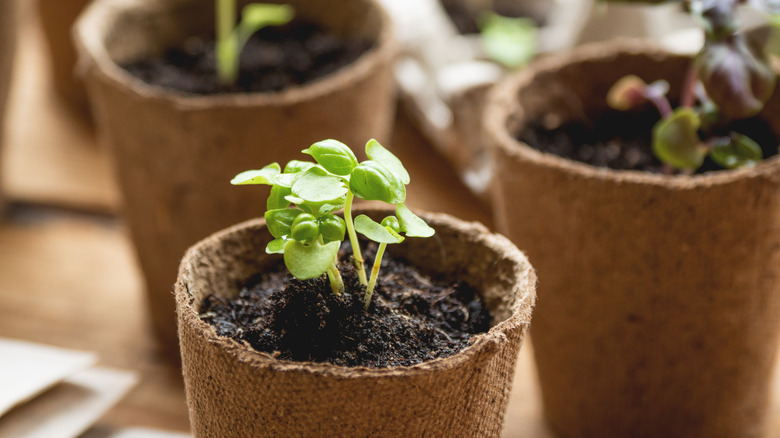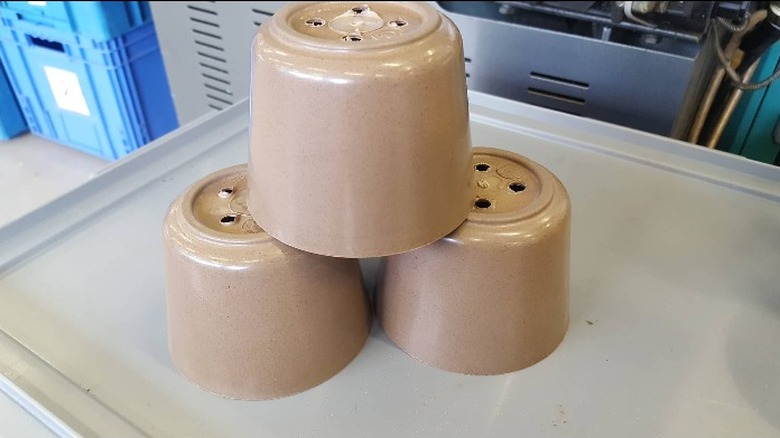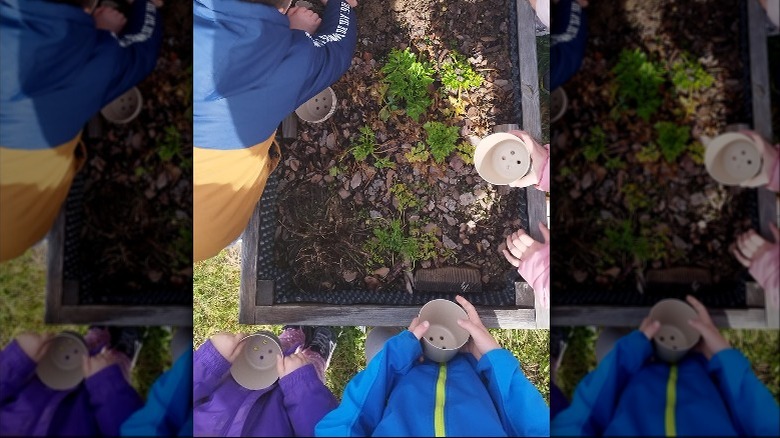Should You Switch To Biodegradable Plant Pots? There's More To It Than Just The Obvious Benefit
Biodegradable plant pots offer more benefits than traditional pots. The obvious one is that they're much better for the environment since they're made from natural materials that break down and decompose over time. This way, they don't contribute to the accumulation of waste in landfills or oceans, unlike plastic pots and some clay pots, and can be composted along with the plant and soil, eliminating the need for separate disposal. However, biodegradable plant pots impact the environment in other ways.
Biodegradable pots contribute to root health and can air prune your plants. They provide a healthier environment for plant roots by allowing for better air circulation, which prevents rot and promotes development. Some pots are designed with perforations or porous materials that facilitate air pruning, where the roots are naturally pruned as they reach the edges of the pot. This promotes the growth of dense and fibrous root systems, leading to healthier and more vigorous plants.
More benefits
Biodegradable pots come in various shapes and sizes, making them suitable for a wide range of plants, from small seedlings to large trees, and can be used for indoor and outdoor gardening, nurseries, or landscaping projects. It's important to note that the exact benefits may vary depending on the specific type and brand of biodegradable pot. Additionally, the overall sustainability of biodegradable pots depends on factors such as their production processes, materials used, and proper disposal methods.
One additional benefit is that they are great for transplanting. Because they are typically made from materials like rice husks, peat, or compostable bioplastics, they can be directly planted into the ground, which reduces transplant shock and disturbance to the roots. Biodegradable pots can also release nutrients into the soil as they decompose and provide additional nourishment to the plant. With their excellent water-draining systems, they also help prevent overwatering and ensure adequate moisture levels for plant growth.
Switching to biodegradable plant pots
Biodegradable plant pots are undeniably better than traditional pots when it comes to plant health and environmental health. They can also make the planting process better for you. They save you the energy and water that comes with cleaning and disinfecting old pots to be reused. They are also cost-effective, especially when you make your own, and you won't have to worry about replacing broken plastic pots again.
You can easily make your own biodegradable plant pots with simple household materials like newspapers, paper egg containers, paper to-go coffee cups, and toilet rolls. The main types of ready-made pots you'll find are made of wood, coir, or peat fiber. These are the best options for air pruning, as mentioned above. There are even biodegradable plastic pots that are similar to the traditional types but are guaranteed to break down eventually. You can throw these away by cutting them into pieces and adding them to the compost.


